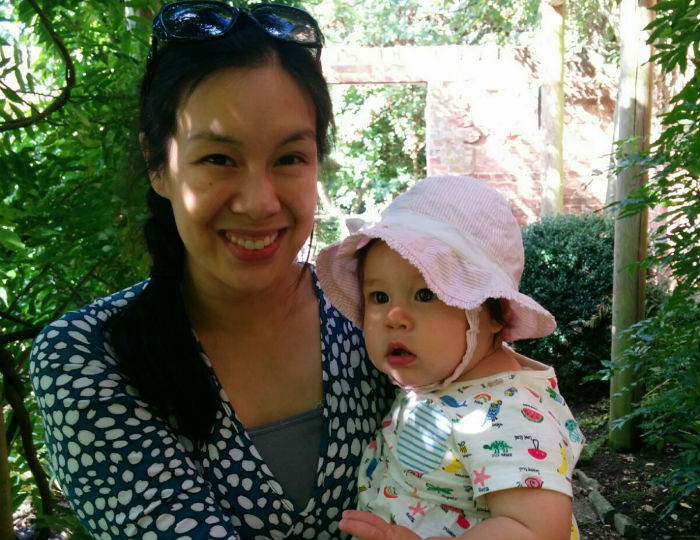The challenge of sustainable living with a 10 month old

If I'm honest, sustainability isn't top of my agenda when it comes to my role as a new mum. I'm more focused on getting through the day without my ten month old eating any cardboard or climbing into the washing machine.
There are many new competing priorities that come with having a baby. But does that mean that sustainable living has gone out of the window completely?
The bottom line in sustainability
Our most obvious attempt at minimising our baby's environmental footprint is her re-usable nappies. But how do we know that real nappies (as they are known) are more environmentally friendly than their disposable counterparts?
Whilst they undoubtedly reduce the volume of waste being sent to landfill (an estimated 355,000 tonnes per year in England and Wales), does that outweigh the environmental impact from all that additional washing?

What was once a decision based on instinct can now be made based on quantitative results from a scientific lifecycle assessment (LCA) of the options (see The Environment Agency's study as an example).
Results from LCA analyses like these are readily and freely available for all sorts of products from nappies to cars. If we can remind ourselves to think about sustainability when choosing what to buy, we can make better-informed buying decisions.
Baby-sized circular economy
There are a few sustainable behaviours that I've picked up by accident. Just like many other parents, I have (slightly addictively) started buying and selling second-hand baby goods on a local community Facebook page.
Sellers can get rid of items that their children no longer need and free up space in their homes. Buyers can buy reasonably priced items and collect them locally.
Parents participate because it’s convenient and economic - but the happy coincidence is that it reduces waste.
It's a baby-sized circular economy in action. And it demonstrates how the circular economy can work when players have the right incentives; when, sustainability aside, taking part just makes good business sense.
Making the circular economy a reality at an industrial scale is much more complicated - but, nonetheless, organisations like the Ellen MacArthur Foundation are currently working on initiatives such as the EU Action Plan for the Circular Economy to encourage better collaboration between business, civil society and the public sector to achieve this.
Sharing the caring
My husband and I are lucky that we can take advantage of the recently introduced shared parental leave policy, which came into force in the UK in April 2015. The policy bestows the legal right for both mother and father to share parental leave over a 12-month period (a right previously given only to mothers).
Whilst sharing the full-time parenting role more equally between us hasn't made us more sustainable parents, I believe it has helped to install a more socially sustainable model for us as working parents.
That said, surprisingly few parents have taken up the opportunity to share their parental leave (only 2% of companies polled by The Telegraph in October 2015 said they had seen any noticeable uptake).
The more parents that take up the offer, the more potential the shared parental leave policy has to level the playing field in the way that employers (and employees) think about gender when it comes to recruitment and talent management.
Sustaining the sustainability
I don't claim to be a paragon of sustainable parenting by any stretch of the imagination but, looking back on the past 10 months, I can see the influence of sustainable thinking in at least a few of my decisions.
There is plenty of new parenting territory to navigate through (another 18 years of it, so I hear) - so I'll keep trying to think sustainably in all the many decisions to come and teach my daughter to do the same.
After all, she is part of the next generation to take on the big sustainability challenge.
Andrea McCormick is a member of the ICAS Sustainability Committee.
